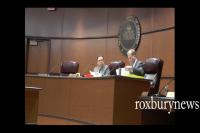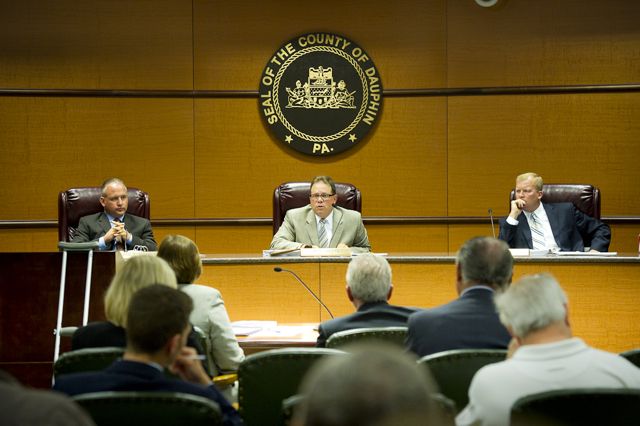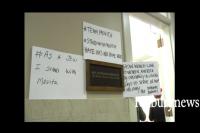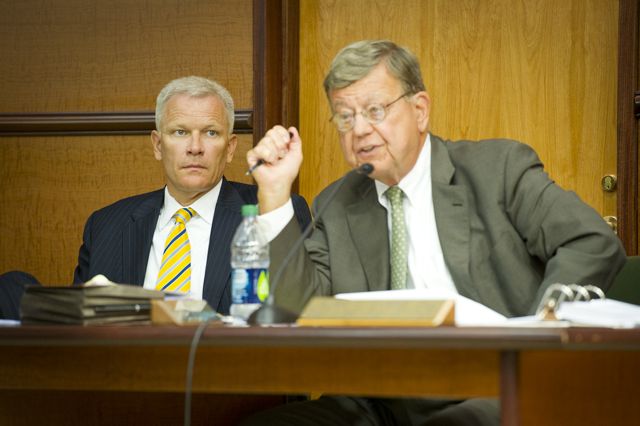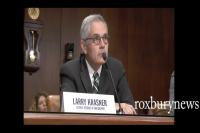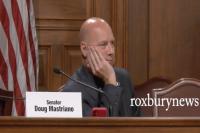The Supreme Court of Pennsylvania has issued the following ruling on Act 13 challenges. Act 13 created an Impact Fee on natural gas development through the Commonwealth of Pennsylvania in addition to adding numerous provisions governing natural gas development to Oil and Gas Act.
The following information was provided by the House Democratic Legal Office:
The Supreme Court's ruling strikes down the controversial local zoning pre-emption provisions of Act 13. Invalidates Section 3215(b) of the Act that imposed restrictions on the locations of well sites and also required DEP to grant waivers of setback requirements merely upon the driller’s request.
Invalidated Section 3304 of the Act, which required local governments to allow for the “reasonable development of oil and gas resources” by restricting what local governments could regulate (in addition to the broader prohibitions contained in the blanket zoning pre-emption provisions of section 3303)
Allowed one of the plaintiff’s (a doctor) challenge to the health care provider gag order provision to move forward.
Also allowed the plaintiffs’ challenge to the constitutionality of the entire Act because it (a) constitutes a “special law” in violation of Article III, Section 32 of the State Constitution and (b) constitutes an unlawful taking of property for a private purpose and an improper use of the Commonwealth’s eminent domain powers to move forward.
The following PDF files were issued by the Supreme Court Earlier today.
Numerous statements have been issued following the release of the Supreme Courts Opinion:
Jeff Schmidt of the Sierra Club Pennsylvania Chapter released the following:
Harrisburg, PA – After an extended delay, the Pennsylvania Supreme Court today released its decision in the Act 13 case, Robinson Twp. V. Pa. Public Utility Commission, finding the local zoning preemption provisions of the Act unconstitutional. The opinion, authored by the Chief Justice, holds that “several core provisions of Act 13 violate the Commonwealth’s duties as trustee of Pennsylvania’s public natural resources under the Environmental Rights Amendment,” which is Article 1, Section 27 of the Pennsylvania Constitution.
“This decision affirms, as we have argued since Act 13 was first introduced,” said Jeff Schmidt, Sierra Club Pennsylvania Chapter Director, “that the state government cannot give DEP or the natural gas industry free reign to supersede the established authority of municipalities. This was a primary reason that we asked state legislators to vote NO on Act 13.”
“This ruling is a victory for our local communities, whose interests the Corbett administration has consistently put behind that of the oil and gas industry. Efforts by the General Assembly or the Governor to resurrect some form of local preemption following this decision will be attempted at great political risk. Those who are our elected officials should act in the best interest of the people, and respect the authority delegated to local municipalities,” continued Schmidt.
Senator John Yudichak, Ranking Member on the Senate Environmental Resources and Energy Committee:
“Today’s Supreme Court decision is a significant victory for Pennsylvania’s local governments, our environment and our economy – as it restores local control and gives the legislature another opportunity to maximize the economic potential of our Marcellus shale drilling industry.” “Act 13 wrongly stripped away the rights of local governments to zone industries within their municipal boundaries – and this lengthy opinion rightly restores local control and allows these local governments to have an input in protecting the environment.” “The Marcellus shale industry has the potential to change the course of Pennsylvania’s economy for the next generation as long as we continue to enact smart regulations and enforce strong policies to protect our environment. It is my hope that this opinion forces the legislature’s hands to seriously consider stronger environmental protections and a responsible severance tax in 2014.” Earlier this year, Yudichak and his colleagues in the Senate Democratic Caucus filed an amicus brief in support of overturning the blanket local zoning preemption provision and the setback requirements related to sensitive water resources in Act 13.
Senator Jim Ferlo offered the following remarks:
“I am heartened by today’s decision in the Supreme Court, and the well-reasoned opinion Chief Justice Ronald Castille writing for the majority. Even more, I continue to join with the ever-growing number of Pennsylvanians who oppose drilling to commend the efforts of the dedicated group of citizens and local municipal officials who brought this suit. I have vehemently opposed Act 13 since its inception; in particular, taking away the sovereignty of local municipalities to choose the best options for their own homes and neighbors near gas drilling sites,” Ferlo stated today.
Senator Ferlo has opposed House Bill 1950 since it was in the General Assembly. The provision eliminating local rights to zoning decisions on gas drilling was of particular concern for the Senator. As a result, Ferlo and 15 of his fellow Democratic caucus members filed an amicus brief in support of the municipalities which brought the suit in 2012. You can read the amicus brief on Senator Ferlo's website.
The Supreme Court’s majority opinion reaffirmed Commonwealth Court Judge Pellegrini’s ruling from July 2012 which reaffirmed the decision-making rights and responsibilities of local municipalities and citizens to determine their zoning ordinances in relation to natural gas drilling. The decision struck down both the weak set back requirements (the provisions dictating how far away a well has to be from structures and water sources) and the heavy-handed zoning requirements that ran roughshod over the rights of municipal governments.
Senator Scarnati and House Speaker Sam Smith expressed their disappointment with the ruling:
The decision made by four Supreme Court Justices today to invalidate a portion of Act 13 of 2012 is incredibly disappointing. While recognizing that a decision of this length will take weeks to fully absorb, we are stunned that four Justices would issue this ruling which will so harshly impact the economic welfare of Pennsylvanians. The majority decision seems to raise significantly more questions than it answers.
Chief Justice Castille’s opinion relies in part on inaccurate antidotes and unproven science. The consequences of this decision will likely be the increase of natural gas prices for consumers, while at the same time costing a multitude of jobs in Pennsylvania. It is important to note that this decision resets the clock on zoning prior to the enactment of Act 13, therefore municipalities will continue to have some statewide checks on local discretion.
The Marcellus Shale Impact Fee legislation was the result of great collaboration between state officials, local officials, industry leaders and environmental groups. There were dozens of strong environmental protections included in Act 13 and due to the Court’s jarring decision it seems that the Court even invalidated some of them.
The Pennsylvania State Association of Township Supervisors was fully engaged in numerous legislative discussions and supported the zoning language during passage, until they later decided to oppose it in court. The language in dispute was crafted with their full input.
In light of the broad severability language discussion contained in the majority opinion, there is some question whether the impact fee which has resulted in over $400 million over the past two years, will remain in place going forward. A reasonable level of regulatory consistency across the Commonwealth is vital to the success of any major industry or employer – however the Supreme Court failed to recognize that in their majority decision. Our fear now is that landowners and hardworking individuals will suffer because of today’s decision.
Governor Corbett's remarks resemble Senator Scarnati and Speaker Smith's comments:
“I am disappointed that the Supreme Court has invalidated some key provisions of Act 13. We are continuing to review today's decision. Act 13 was a bipartisan accomplishment between the Administration and members of the General Assembly, which raised the bar on environmental protection standards while respecting the rights of local governments.
“The Act was crafted with strong input and support from Pennsylvania's local government organizations. We must not allow today’s ruling to send a negative message to job creators and families who depend on the energy industry. I will continue to work with members of the House and Senate to ensure that Pennsylvania’s thriving energy industry grows and provides jobs while balancing the interests of local communities.”
Photo by Natalie Cake.


